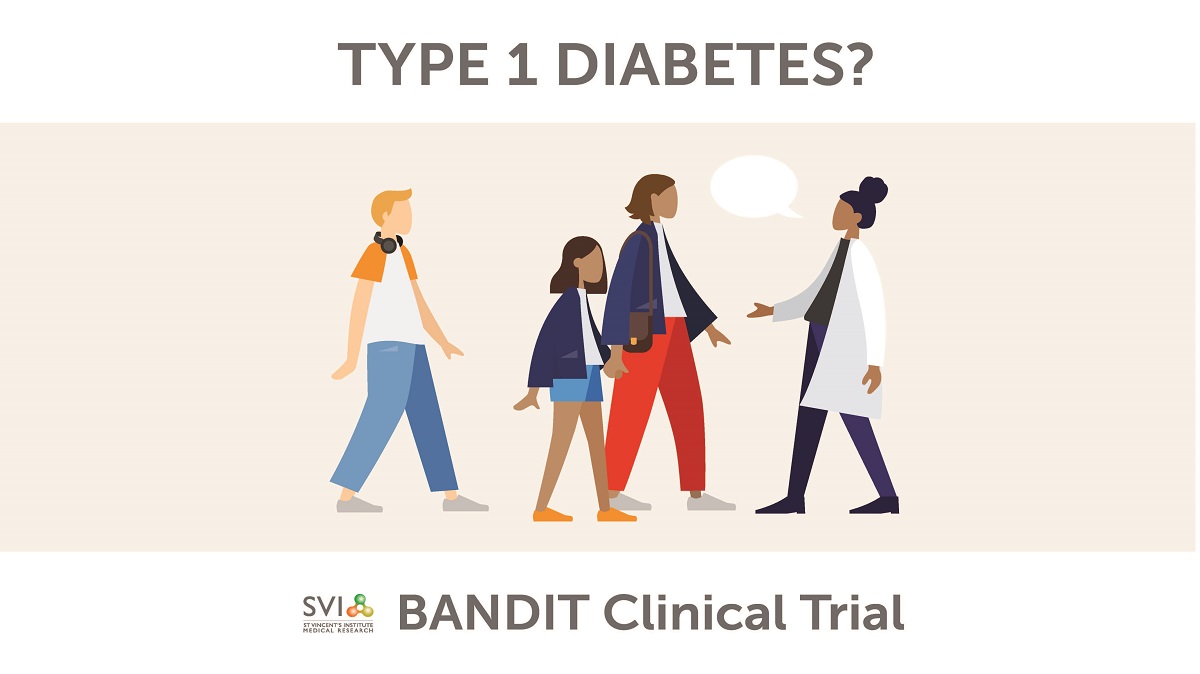
Many scientists enter their fields hoping that their work will directly impact people’s lives. That is exactly what Thomas Kay, M.B.B.S., and Helen Thomas, Ph.D., at the St. Vincent’s Institute of Medical Research (SVI), in Australia, wanted to do for type 1 diabetes (T1D).
Through their research, they discovered that inhibition of a protein, called JAK, may work in slowing down or preventing beta cell loss.
JAK—otherwise known as Janus kinase—is critical to signaling pathways within both immune cells and beta cells in T1D. It is therefore a very attractive target for the correction of both immune and beta cell defects in T1D.
Kay and Thomas now have a clinical trial, funded by Breakthrough T1D, to find out if a JAK inhibitor, called baricitinib, will preserve beta cell function in children and young adults with recently diagnosed T1D. (It’s called BANDIT, which stands for BAricitinib in New-onset type 1 DIabeTes.)
“It is tremendously exciting for us to be the first group anywhere in the world to test the efficacy of baricitinib as a potential type 1 diabetes treatment,” says Dr. Kay. “Our BANDIT trial will determine if the treatment can protect insulin-producing cells of people recently diagnosed with type 1 diabetes from further immune attack. If it proves successful, production of insulin will be maintained and people with type 1 diabetes will be significantly less dependent on insulin treatment. Making more insulin after diagnosis of diabetes has benefits that are increasingly recognised.”
JAK inhibitors are a type of therapeutic that do what the name says—stop or inhibit the activity of a JAK protein in your body.
It is a bench-to-bedside research project—that has gone from basic research at the laboratory through a clinical trial in people with T1D—that Breakthrough T1D has had a hand in for more than a decade.
“We are very excited to support this trial, led by Dr. Thomas Kay and colleagues,” says Simi Ahmed, Ph.D., director of research at Breakthrough T1D. “We are grateful to Eli Lilly and company for providing the investigational drug, and to our colleagues at Breakthrough T1D Australia for their partnership in launching this trial.”
Preservation of a Body’s Own Beta Cells
The trial aims to recruit approximately 85 participants, aged 12-30 years, who have been recently diagnosed with T1D and will test if baricitinib can slow the loss of insulin-producing beta cells in people with the disease.
Baricitinib is already approved for the treatment of rheumatoid arthritis and is currently in clinical trials for other autoimmune diseases (T1D is an autoimmune disease, too). This is because JAKs are often associated with over-reactive immune systems. Recently, the FDA approved it in combination with remdesivir for the emergency treatment of people who have been hospitalized with severe COVID-19 and whose immune systems are on over drive.
Other JAK inhibitors have been approved for treating blood cancer, which is a cancer of the immune system. This is the first time, however, that a JAK inhibitor is being tested in T1D.
A Reversal of T1D. Wait…What?!?
One might say that T1D can’t be reversed. Well, that’s not true now.
On October 8, a letter to the New England Journal of Medicine revealed that doctors had reversed T1D in a young man. This was a precision medicine treatment that corrects the effect of a mutation of a gene product that is directly activated by JAKs, and he has been off insulin treatment for more than 2 years.
What drug was it? Another JAK inhibitor. (This time, it was ruxolitinib.)
We don’t know whether JAK inhibition will help others with T1D, who don’t have this genetic mutation. However, we do know that cell pathways that involve the JAKs are aberrant in T1D and in many other diseases. We’ll have to see the results of this clinical trial to know.
“Breakthrough T1D remains very hopeful that the results will propel future commercial development of this class of therapies for type 1 diabetes,” says Ahmed.
Stay tuned.
Clinical Trial Information
If you are interested in participating in the BANDIT (BAricitinib in New-onset type 1 DIabeTes) trial, contact the trial coordinator via email at bandit@svi.edu.au or by mobile on +61 3 0450 323 962 in Australia.